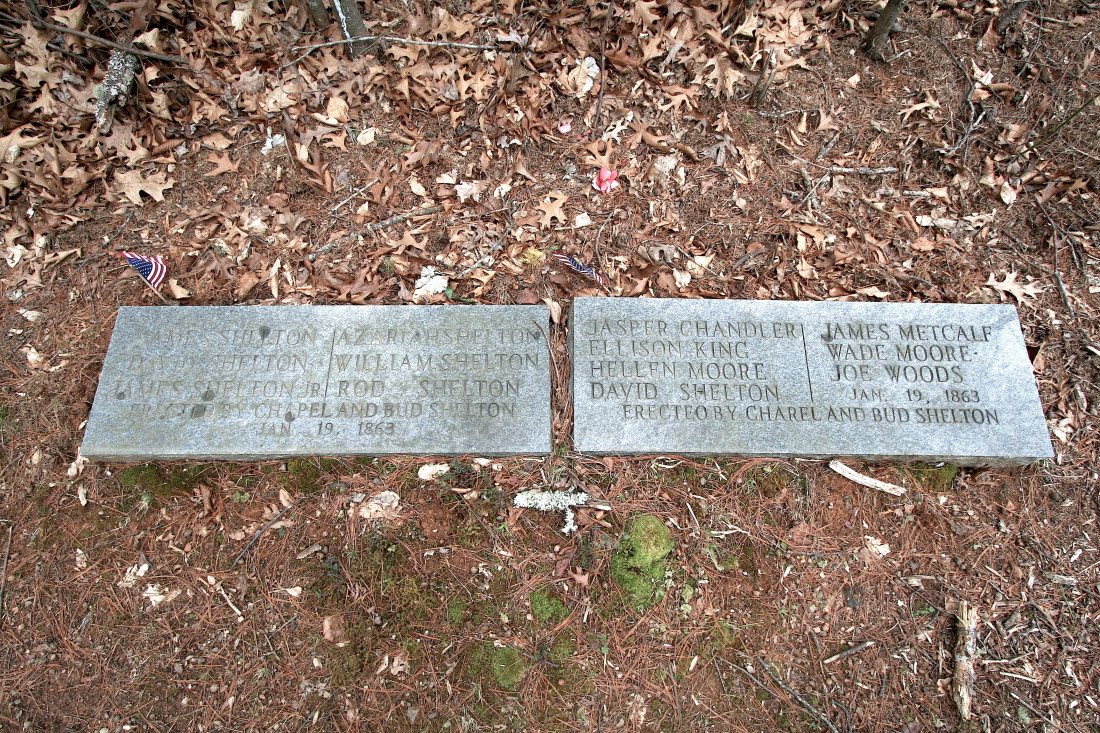Editor’s note: The Rural Heritage Museum’s upcoming exhibit, “The Civil War in The Southern Highlands: A Human Perspective,” was curated by Mountain Xpress staff writer Max Hunt (a.k.a.: me). Xpress is not affiliated with the exhibit’s development or concept.
From the Rural Heritage Museum at Mars Hill University:
The Rural Heritage Museum At Mars Hill University Opens New Exhibition:
“THE CIVIL WAR IN THE SOUTHERN HIGHLANDS:
A HUMAN PERSPECTIVE”
August 19, 2017 – March 4, 2018MARS HILL, NC. July 14, 2017 — The Rural Heritage Museum at Mars Hill University opens a new exhibition, “The Civil War in The Southern Highlands: A Human Perspective“, beginning August 19, 2017. This exhibition presents an account, using rare original letters and newly-discovered documents, of the personal struggles of the people living in Madison County and the Southern Appalachian Mountains during the middle of the 19th century. Along with an extensive narrative produced for 18 large, didactic panels, the exhibition includes dozens of photographs and authentic objects from the period, including a wedding dress, a jacket worn by the infamous Lt. James Keith of the 64th North Carolina Regiment, confederate currency, flags, books, sabers, ammunition, a McClellan cavalry saddle with brass stirrups, a coverlet, a very rare appliqué quilt and many other objects of everyday life owned by individuals on both sides of the war.
The exhibit is centered around the tragic events of January, 1863 in a far-flung corner of Madison County. As the snow lay thick across the mountains and valleys, Confederate soldiers summarily arrested then executed 13 prisoners — mostly old men and boys — in the remote Shelton Laurel valley.
The “Shelton Laurel Massacre,” as it became known to posterity, drove a deep wound into the rural communities of Madison County that lingers to this day. In many ways, the event has become emblematic of the Civil War as fought in the mountains: confused and complicated, often conducted outside the “rules” of war by individuals with changeable loyalties, looking only to survive. The resulting consequences were often brutal for the women, children, and former African-American slaves left to tend to the homes and farms.
The business of this exhibit is not to pick sides or cast blame, but simply to present the viewer with the “facts” as best we know them to be. The rights and wrongs of the conflict are beyond our vantage point to judge. But by way of careful study, the exhibition organizers attempt to shed light on the complex, apocryphal nature of the conflict in the devastated Southern Highlands, which still reverberates deep in the hollows and gaps of the Blue Ridge.
The larger lessons to be learned ― of survival, hope and desperation; of the best and worst behavior mankind is capable of ― pick no side, but stand silent and as impartial as the mountains that witnessed these events so long ago.
This exhibition, coordinated by Les Reker, Director of Rural Heritage Museum, was curated by Max Hunt, senior writer for the Asheville-based Mountain Xpress, along with historian Katherine Cutshall and authors Maynard Shelton and Dan Slagle, with editing, writing, research and design provided by Carolyn Comeau and Ryan Phillips.
This exhibition is made possible through a grant from the Madison County Tourism and Development Authority.
The Rural heritage Museum is open daily (except Mondays) from 11 a.m. to 5 p.m., and by appointment. It is located in Montague Hall, 80 Cascade Street, Mars Hill, North Carolina. From Asheville take US 19 North to exit 11, then on Rt. 213 1.3 miles to the campus of Mars Hill University, a 20 minute drive. Admission is free.
Mailing address:
Rural Heritage Museum
Box 6705
Mars Hill University
Mars Hill, North Carolina 28754.For more information or to schedule a group tour, please call (828) 689-1400. Visit the Museum’s website: www.mhu.edu/museum or Facebook page.
Mars Hill University is a premier private, liberal arts institution offering over 30 baccalaureate degrees and one graduate degree in elementary education. Founded in 1856 by Baptist families of the region, the campus is located just 20 minutes north of Asheville in the mountains of western North Carolina.www.mhu.edu.




Before you comment
The comments section is here to provide a platform for civil dialogue on the issues we face together as a local community. Xpress is committed to offering this platform for all voices, but when the tone of the discussion gets nasty or strays off topic, we believe many people choose not to participate. Xpress editors are determined to moderate comments to ensure a constructive interchange is maintained. All comments judged not to be in keeping with the spirit of civil discourse will be removed and repeat violators will be banned. See here for our terms of service. Thank you for being part of this effort to promote respectful discussion.